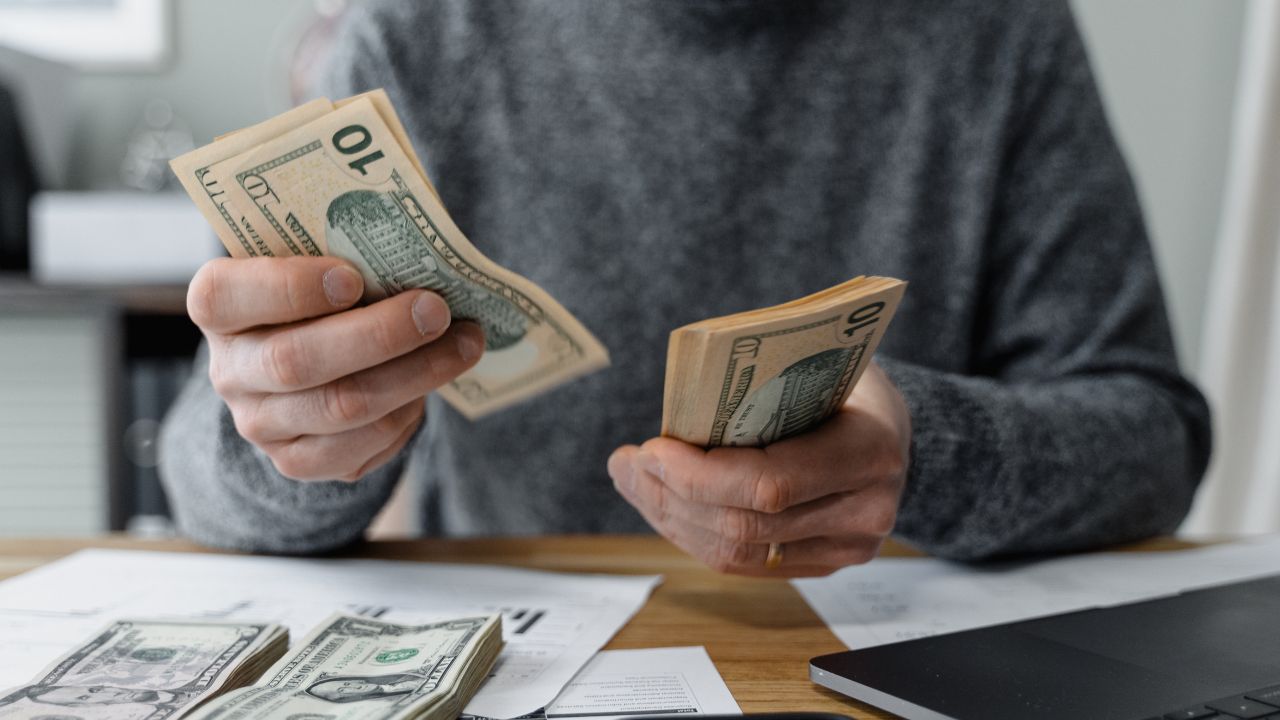Introduction
How Did Gatsby Make His Money? Shocking Truth, The opulent riches of Jay Gatsby, the lavishly wealthy hero of . Scott Fitzgerald’s classic Jazz Age novel The Great Gatsby, have confused readers for more than 90 years. What did Gatsby do to make his money? Question That Has Led to Many a Debate, As Fans Wonder Just How He Made All His Money.
All through the novel the wealth of Gatsby is seen to be through ambition or mystery, however the fact is still out of the reach. In this post, we will reveal the secrets of Gatsby’s lucrative business, the dark transactions that first made him rich, and the enigmatic figure that Gatsby was before the parties came to dominate his life.
The Early Life of Gatsby and His Road to Wealth: How Did Gatsby Make His Money
Indeed, Gatsby was born James Gatz in North Dakota, and did not always cut the suave, mysterious figure he grows into over the course of the novel. Even as a child Gatsby was ambitious with a desire to rise above his poverty.
Then he renamed himself Jay Gatsby and left that life behind and went off to strike it rich. This was one of the decisions that helped him succeed later financially.
The Role of Dan Cody

Anchner, you cheeky bit of a beggar. One of the most important influences on Gatsby during this time of growth is his connection to Dan Cody, a wealthy copper mogul. Gatsby had met Cody when he was a young fisherman on Lake Michigan, and Cody took him on his yacht and employed him.
It was via Cody that Gatsby entered the world of wealth, but Cody’s wealth could not be transferred to Gatsby following Cody’s death. But Gatsby’s encounter with Cody influenced his ambitions, showing him how to make his way through high society.
Gatsby’s Bootlegging, Revealed
Among the most common theories about how Gatsby got his money is that he was involved in illegal activity, namely bootlegging. Prohibition did make the sale of alcohol illegal, but it also offered an opening for enterprising people who liked money, and who didn’t mind profiting illegally. Ever the opportunist, Gatsby spotted opportunity amid this black market.
Gatsby and Meyer Wolfsheim
The Gold-Gangster-Sleazebag Complex 4Meyer Wolfsheim: A character in the novel associated with organized crime who is often associated with Gatsby’s wealth. Wolfsheim is supposedly responsible for fixing the 1919 World Series, and Gatsby hints that he and Wolfsheim partook in similar illegal activities such as bootlegging.
Although he never openly confesses to having engaged in these activities, it is evident from the novel that Gatsby is rich as a result of his questionable links with characters such as Wolfsheim.
Gatsby’s Strategy for Making Money
Gatsby’s path to wealth wasn’t only in bootlegging. He was also a savvy entrepreneur who knew what opportunities were in front of him in the quickly modernizing world of the early 20th century.
By being part of a group of well-to-do people, Gatsby was able to get his money into diversified businesses and grow his money power. Yet large parts of his fortune hovered in the nebulous background of his identity, lending him an air of intrigue.
Gatsby’s Investment and Real Estate Moves
In addition, to bootlegging, Gatsby was also a major real estate investor. He buys a huge mansion in West Egg, a material monument that he can point to as evidence of his success. His was the mansion that sat next door to Nick Carraway’s place, from which Gatsby was able to make a great show of himself.
For Gatsby, the mansion wasn’t just a place to live; it was also a means for him to advance his social status and establish himself more completely within the ranks of the new money elite of New York.
Gatsby’s Wealth and the American Dream

Gatsby’s tale of riches is part and parcel of the American Dream that anyone can reach success and fortune, regardless of where they come from, by virtue of hard work and perseverance. Yet Gatsby’s story is a warning, too, of the evil that hunkers out in the territories we do not know.
His pursuit of riches was motivated not only by aspirations for wealth, but by the wish to be loved and accepted, as clearly shown in his infatuation with Daisy Buchanan.
The American Dream Gone Bad
(Although the American Dream is often cited as the source of Gatsby’s fortune, his story illustrates how corrupt and cruel the Dream appears in reality.) Gatsby uses illegal means to obtain Lady Daisy and ultimately, he reverts back to his past, whether it be criminally and deceptively, but his love draws and connects him with Daisy.
Though his ostentatious parties and his luxurious way of life, Gatsby epitomized wealth and power, and it was yet impossible to discover his wealth was well-kept secret.
Gatsby’s Place in the Stock Market
While a good deal of Gatsby’s riches bore the mark of his illegitimate involvement, there were elements of real business success to his pilgrimage, as well. Some believe that Gatsby must have invested an enormous amount in the stock market during the roaring twenties.
There is little in the way of hard evidence for this speculation in The Great Gatsby, but such selective purchases of stock as Gatsby might have conducted were very possible during the heady days of “easy money” on Wall Street.
Gatsby’s Fortune Unveiled: What He Had and How He Got It
Although others believe that Gatsby’s fortune is due to his criminal activities, there is more behind his power, some claim. Gatsby’s wealth wasn’t simply about becoming rich it was about forging a personality to draw other people (chiefly Daisy).
But if we want to unmask how did Gatsby get his money, then we need to retrace our steps a little, and explore the methodology that enabled our caped anti-hero to build the character of an affluent, prosperous individual.
The Art of Persona Growth
A crucial aspect of Gatsby’s wealth is the way he can feign being wealthy and refined. He worked hard to create his own identity and fashion his own lifestyle after the American Dream.
By throwing wild parties, flashing his anxiety-producing wealth and changing himself like a chameleon, Gatsby projected an imitation of success. His home, his clothes, his carefully constructed image these are all meant to impress Daisy and the rest of the world.
The Interest of Gatsby in American Dream
Gatsby’s ascent to wealth is another good example of the American Dream. The possibility that anyone, regardless of his humble past, could succeed in life with hard work and perseverance had been the very inspiration that drove Gatsby’s pursuits.
He thought that money would bring him happiness and that with financial success he would be able to accomplish anything, win Daisy’s love, and be a part of the rich class.
Gatsby and Complicated Relationships to Money
His showy materialism aside, Gatsby had a complicated relationship to money. More broadly in the novel, Gatsby is disillusioned with the material wealth he amassed.
He has a persistent need to be told he is good enough and is terrified of being inadequate, particularly to Daisy, who he considers to be everything he has ever desired. In this way, Gatsby’s riches are a means to an end, not simply an end of itself, of owning things and having vast quantities.
Gatsby’s Wealth: It’s Not Just About Money
Gatsby’s tale of wealth is not a story of fortunes gained and lost; it’s a story about aspiration and self-invention, striving and failing to dream of a self into being.
If the origins of his estate are criminal, Gatsby’s ultimate aim was not simply to acquire wealth but to remake himself to demonstrate to the person he once was, the penniless bootlegger Jay Gatz, that he was not, in the end, unworthy of her, the Daisy Fay who defied his own social position.
The Bitter Irony of Gatsby’s Dream

The cruel irony of Gatsby’s financial success is that, despite what he achieved, he never actually got the one thing he wanted Daisy’s love. He thought that the answer to his problems was material and it was what made sure he would never make his dreams come true. In the end Gatsby’s money, parties, and mansion were worthless without that woman’s love that he had romanticized for so many years.
Gatsby’s Financial Legacy
Even if Gatsby’s wealth did not make him happy, it impacted the world he lived in. His ascent to riches embodies the American Dream and shows the perils of greed. Although Gatsby’s is, by and large, ill-gotten wealth, his is also a cautionary tale about the limits of wealth and the cost of chasing after dreams that prove to be impractical.
Conclusion
How did Gatsby get all his money, is more than just a business inquisition. It exposes the fathoms of the American Dream, romance, deceit and despair. Gatsby amassed his wealth through nefarious channels all in the name of trying to win back a prior lost love.
His tale may serve as a cautionary note: that the acquisition of wealth that does not arise from honesty and recognition may result in seclusion and ruin.
Key Takeaways:
- Gatsby made his fortune illegally, through bootlegging.
- He created a false persona.
- Financial success was no guarantee of happiness.
FAQ:
1.Was Gatsby’s money inherited?
No, Gatsby was not left any money from Dan Cody. Gatsby was born poor.
2. Did Gatsby get rich legally?
No. The majority of evidence points to his fortune having been amassed through criminal activities such as bootlegging.
3. Who was responsible for making Gatsby rich?
Gatsby made his money with the help of Meyer Wolfsheim, a gangster.
4. Was Gatsby involved in the mob?
Yes. His connections with Wolfsheim and illegal liquor sales suggest he is involved in organized crime.
5. What was Gatsby’s desire for wealth?
He sought to win Daisy back, and thought he could do so if he had enough money to be worthy of her.
